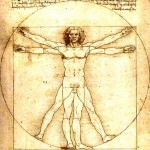Is God an enemy of the body? – Naso
 Parashat Naso tells us about the nazir who because he abstains from the pleasures of the world, is not one of the Torah’s favourite people.
Parashat Naso tells us about the nazir who because he abstains from the pleasures of the world, is not one of the Torah’s favourite people.
Maimonides, in his Eight Chapters on Ethics, severely criticises ascetics who do without the physical comforts that the law clearly allows. They imply, he says, that “God is the enemy of the body”.
“He who walks in this (ascetic) path,” Maimonides adds in his Hilchot De’ot 3:1, “is called a sinner. On all these and similar practices, King Solomon stated, ‘Be not righteous overmuch, neither make yourself over-wise – why should you destroy yourself?’ (Kohelet 7:6)”.
But there is a distinction. In dealing with fellow human beings, it is meritorious to go overboard in showing care, consideration, compassion and respect, but in religious observances such as fasting one does not have to do more than the law requires.
The Talmud quotes the saying of the sage Samuel, “He who makes a habit of fasting is called a sinner” (Ta’an. 11a).
Eating on a set fast day is a transgression, unless there is a good health reason; but denying oneself food on a non-fast day is also wrong.



